SEO Specialist for Individual Page Optimization
For individual page optimization, focus on specific keywords and ensure proper meta tags and content. Enhance the user experience and aim for high-quality backlinks to improve page rankings.
Page optimization is crucial for organic search visibility and enhancing user experience while seeking to improve rankings and click-through rates. It involves strategic keyword placement, relevant content, and ensuring each page’s technical elements are optimized. By adhering to the best practices of SEO, individual page optimization can significantly impact a website’s overall performance.
It’s important to continuously monitor and update optimization efforts to adapt to algorithm changes and user behavior.
What Is Seo
SEO stands for Search Engine Optimization, a vital process for improving a website’s visibility in search engine results. It involves optimizing individual web pages to rank higher and gain more organic traffic.
Importance Of Seo
Implementing SEO is crucial as it enhances a website’s online presence, helping it attract more visitors and potential customers. Furthermore, it enables businesses to increase their brand awareness and stay ahead of competitors in the digital landscape.
Basic Seo Concepts
Understanding the fundamental elements of SEO is essential for effective optimization. This includes aspects such as keyword research, on-page optimization, link building, and technical SEO, all of which contribute to a website’s search engine performance.
Page Optimization
In the world of SEO, individual page optimization plays a critical role in enhancing a website’s visibility and search engine rankings. Effective page optimization ensures that each web page is structured, organized, and presented in a way that search engines can easily understand. Let’s delve into the importance of individual page optimization and how it can benefit your website.
Role Of Seo For Individual Pages
An SEO specialist’s role in individual page optimization involves meticulous analysis of each page’s content, meta tags, keywords, and internal/external links. By optimizing each page, the specialist aims to enhance its relevance, keyword targeting, and overall performance in search engine results.
Benefits Of Individual Page Optimization
- Improved Search Engine Rankings: Individual page optimization helps improve the visibility and ranking of specific pages in search engine results, driving more organic traffic to your website.
- Enhanced User Experience: Optimized pages deliver a seamless and engaging user experience, reducing bounce rates and increasing user engagement.
- Targeted Keyword Optimization: By focusing on individual pages, SEO specialists can optimize content around specific keywords, catering to the diverse search intents of users.
- Increased Conversion Rate: Well-optimized pages can result in higher conversion rates as they effectively communicate the intended message and prompt action from visitors.
Keyword Research
Keyword research is an essential part of individual page optimization. By identifying relevant keywords and analyzing competitors, SEO specialists can optimize website content to rank higher in search engine results pages (SERPs).
Identifying Relevant Keywords
To effectively optimize a web page, it is crucial to identify relevant keywords that align with the content and intent. By understanding the phrases and terms that users commonly search for, SEO specialists gain insight into what drives organic traffic and ensures increased visibility. Here’s how to identify relevant keywords:
- Start by brainstorming a list of words and phrases that are directly related to the page content. Consider both broad and specific terms.
- Utilize keyword research tools like Google Keyword Planner, Moz Keyword Explorer, or SEMrush to expand your list and discover additional relevant keywords. These tools provide valuable insights into search volume, competition, and related keywords.
- Consider long-tail keywords, which are more specific and have lower search volume. While they might bring in less traffic individually, long-tail keywords often have higher conversion rates.
- Once you have a comprehensive list of potential keywords, analyze each term’s competitiveness. Look for keywords that strike a balance between relevance and achievable ranking potential.
Competitor Analysis
An essential aspect of keyword research is conducting competitor analysis. By examining the keywords their competitors are targeting, SEO specialists gain valuable insights to refine their own keyword strategy. Here’s how to perform competitor analysis:
- Identify the top competitors in the industry or niche. These are the websites that consistently rank high for the targeted keywords.
- Analyze the competitors’ websites thoroughly. Look for the keywords they are targeting, the density of those keywords within their content, and their overall optimization strategies.
- Consider the user experience (UX) elements on competitor websites. Evaluate factors like loading speed, mobile-friendliness, and site structure, as these can affect search engine rankings.
- Use SEO tools like Ahrefs, SEMrush, or Moz to get a complete analysis of competitor backlinks. Analyzing their backlink profiles can provide inspiration for creating a more effective link-building strategy.
By performing in-depth keyword research and competitor analysis, SEO specialists can optimize their individual pages effectively. This process ensures that the web content aligns with user searches, increases organic traffic, and improves search engine rankings.
On-page Optimization Techniques
Optimize individual web pages for better search engine rankings with effective on-page optimization techniques. Enhance site visibility and improve user experience by implementing SEO strategies tailored to each specific page.
To improve your website’s visibility in search engine results pages (SERPs), it is crucial to implement effective on-page optimization techniques. On-page optimization involves optimizing individual web pages to increase their relevance to targeted keywords and improve overall user experience. By focusing on elements such as title tags, meta descriptions, and URL structures, you can enhance your website’s SEO performance.
Title Tag Optimization
The title tag is an HTML element that specifies the title of a web page. It is displayed as the clickable headline in search engine results. Optimizing the title tag is crucial for improving your search engine rankings and attracting more clicks. To optimize your title tag, make sure it accurately represents the content of the page while incorporating relevant keywords. Keep it concise, within 60 characters, and include your primary keyword close to the beginning for maximum impact. For example:
Meta Description Optimization
The meta description is a brief summary that provides search engine users with an overview of your webpage’s content. Although it doesn’t directly impact rankings, optimizing the meta description can significantly influence click-through rates. Aim to create a compelling, concise, and relevant meta description to entice users to click on your result. Keep it under 160 characters and strategically include your primary keyword. For example:
Url Optimization
The URL structure of your web page plays a vital role in both user experience and SEO. An optimized URL should be concise, descriptive, and easy to read. Avoid long, complex URLs containing random strings of characters. Instead, focus on incorporating your target keyword and make it as user-friendly as possible. Use hyphens to separate words for improved readability. Examples of optimized URLs:
| Unoptimized URL | Optimized URL |
|---|---|
yourdomain.com/page?id=12345 |
yourdomain.com/seo-specialist-individual-page-optimization |
By implementing these on-page optimization techniques, you can significantly enhance your website’s SEO performance and increase your chances of ranking higher in search engine results. Remember to always create valuable, high-quality content that aligns with your target keywords. Continuously monitoring and optimizing these elements will help you improve your website’s visibility and attract more organic traffic.
Content Optimization
For individual page optimization, an SEO specialist focuses on content optimization to improve search engine rankings. This involves keyword research and integration, meta tag optimization, and enhancing the overall user experience to increase organic traffic and visibility. It’s crucial to align with SEO best practices and provide valuable, relevant content for users.
Content Optimization plays a crucial role in improving the visibility and ranking of individual web pages. By strategically optimizing the content on a page, you can make it more search engine friendly and increase its chances of appearing in relevant search results. In this section, we will explore three key aspects of content optimization: Keyword Placement, Optimizing Headings and Subheadings, and Image Optimization. Let’s delve into each of these subtopics to understand how they contribute to the overall optimization of a web page. Keyword Placement Keyword Placement refers to the strategic placement of target keywords within the content of a web page. By incorporating relevant keywords naturally throughout the content, you can signal to search engines what the page is about and improve its chances of ranking for those keywords. Here are a few tips for effective keyword placement: 1. Include primary keywords in the page title: The title of your page is an important element that search engines consider when determining relevance. Make sure to include your primary keyword in the title to optimize it for search. 2. Incorporate keywords in the meta description: The meta description provides a concise summary of the page content. Including relevant keywords in the meta description can help search engines understand the page’s topic and improve its click-through rate. 3. Utilize keywords in headings and subheadings: Headings and subheadings not only make your content scannable for readers but also provide an opportunity to include keywords. Incorporate relevant keywords in your headings and subheadings to improve the page’s optimization. 4. Sprinkle keywords throughout the content: Ensure that your target keywords are naturally integrated into the body of the content. However, be mindful of keyword stuffing, as excessive use of keywords can adversely affect the user experience and harm your SEO efforts. Optimizing Headings and Subheadings Headings and subheadings break up the content into digestible sections and make it easier for readers to navigate. They also serve as important SEO elements, signaling to search engines about the page’s structure and main topics. Here are some best practices for optimizing headings and subheadings: 1. Use H1 for the main heading: The main heading of the page should be wrapped in an H1 tag. This helps search engines understand the primary topic of the page. 2. Utilize relevant keywords: Incorporate relevant keywords naturally in your headings and subheadings. This not only improves the page’s optimization but also makes it easier for readers to skim through the content and find the information they need. 3. Maintain a logical hierarchy: Use a logical and hierarchical structure for your headings and subheadings. Start with an H1 for the main heading, followed by H2 for subheadings, and so on. This helps both search engines and readers understand the content flow. 4. Keep headings concise and informative: Make sure your headings and subheadings accurately summarize the sections they represent. Avoid using vague headings that don’t provide any context about the content beneath them. Image Optimization Images not only enhance the visual appeal of a web page but can also contribute to its SEO performance. Here’s how you can optimize images to improve your page’s visibility: 1. Choose descriptive file names: Rename your image files to include relevant keywords that describe the content of the image. This helps search engines understand the image and its context. 2. Add alt text: Alt text provides contextual information about an image to both search engines and visually-impaired users. Include a concise and descriptive alt text that incorporates relevant keywords. 3. Optimize image sizes: Large-sized images can slow down page loading speed, affecting user experience and search engine rankings. Compress and optimize images to reduce their file size without compromising their quality. In conclusion, incorporating content optimization techniques like strategic keyword placement, optimizing headings and subheadings, and image optimization can significantly enhance the SEO performance of individual web pages. By following these best practices, you can improve the visibility and ranking of your pages, ensuring they attract the right audience and generate valuable organic traffic.
Frequently Asked Questions Of Seo Specialist For Individual Page Optimization
What Is Individual Page Optimization?
Individual page optimization refers to the process of optimizing a specific webpage to improve its rankings and visibility on search engine results pages (SERPs). This involves optimizing various elements such as content, meta tags, headings, keywords, and internal linking to enhance the page’s relevance and authority.
Why Is Individual Page Optimization Important For Seo?
Individual page optimization is crucial for SEO because it helps search engines understand the relevance and value of a webpage. By optimizing each page, you increase the chances of it being indexed and ranked higher on SERPs. This leads to more organic traffic, improved user experience, and higher conversions.
What Are The Key Elements To Consider In Individual Page Optimization?
In individual page optimization, several key elements should be considered: 1. Content: High-quality, relevant, and unique content that targets specific keywords. 2. Title Tag: Accurate and compelling title tags that summarize the page’s content. 3. Meta Description: A concise and persuasive description that entices users to click on the page. 4. Headings: Proper use of headings (H1, H2, etc.) To structure and communicate the page’s content. 5. Keyword Placement: Strategic placement of keywords throughout the content, headings, and meta tags. 6. Internal Linking: Incorporation of internal links to guide users and search engines to related content on your website.
How Can I Optimize The Content Of An Individual Page?
To optimize the content of an individual page, you should focus on: 1. Keyword Research: Identify relevant keywords that align with the page’s content and target audience. 2. Keyword Placement: Incorporate these keywords naturally in the page’s headings, subheadings, and body content. Avoid overstuffing keywords. 3. Unique and Valuable Content: Create high-quality, unique, and valuable content that satisfies the user’s search intent. 4. Readability: Ensure the content is easy to read and understand, with proper use of paragraphs, bullets, and subheadings. 5. Engaging Multimedia: Incorporate relevant images, videos, and other multimedia elements to enhance user engagement. 6. Regular Updates: Keep the content fresh and up to date to maintain its relevance and authority.
Conclusion
To sum up, optimizing individual webpages for SEO is crucial for driving traffic and improving website rankings. By implementing the right strategies such as keyword research, on-page optimization, and user-friendly design, you can ensure your webpage ranks higher in search engine results pages.
Remember to focus on providing valuable, unique content that resonates with your target audience. Stay up-to-date with the latest SEO trends and make adjustments as needed to stay ahead of the competition. Start optimizing your individual webpages today and watch your website grow in visibility and organic traffic.

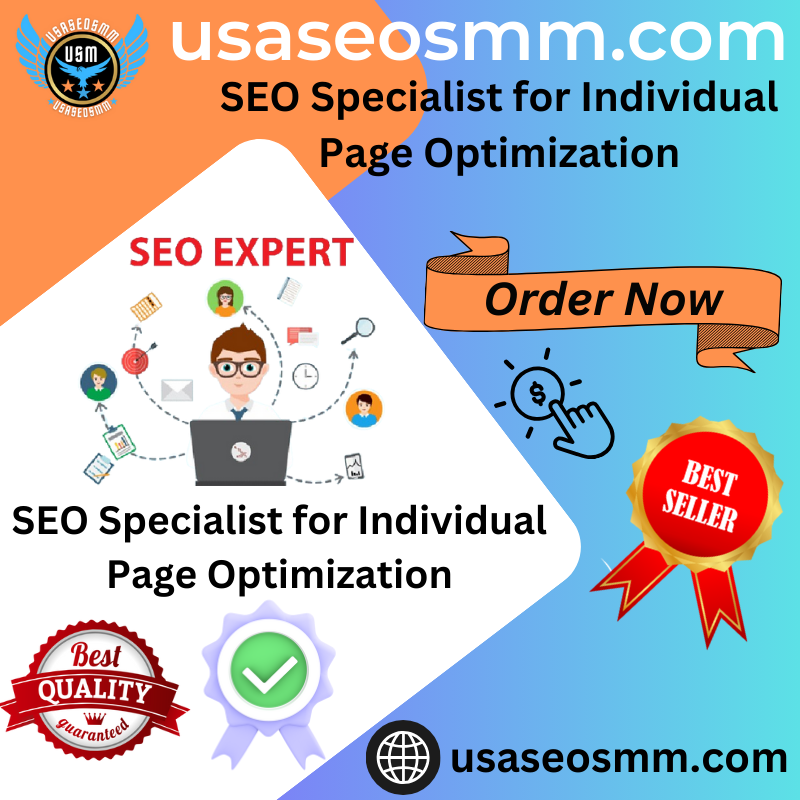
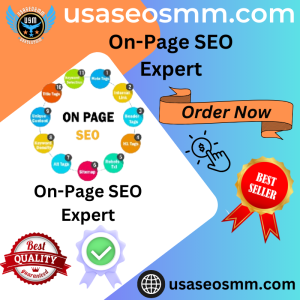
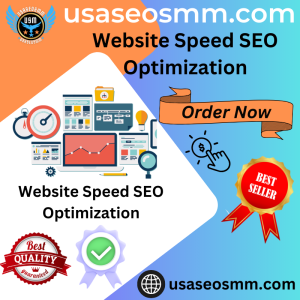
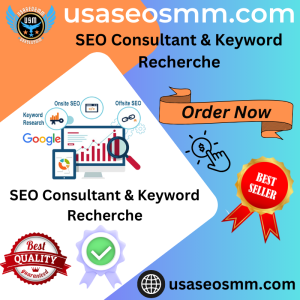
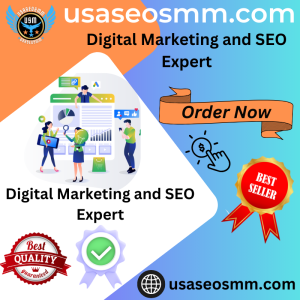
Reviews
There are no reviews yet.